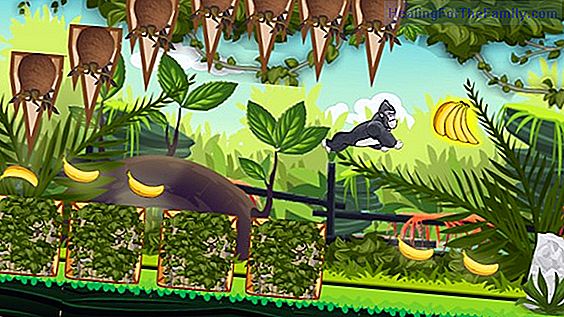The superpowers of vegetables for children
The diet of children has changed in recent years, unfortunately, reducing the amount of fruits and vegetables to increase carbohydrates, and above all, simple sugars and saturated fats, because for children, sweets, fast food or chips are tremendously attractive, while fruits and vegetables, despite
The diet of children has changed in recent years, unfortunately, reducing the amount of fruits and vegetables to increase carbohydrates, and above all, simple sugars and saturated fats, because for children, sweets, fast food or chips are tremendously attractive, while fruits and vegetables, despite being much more nutritious, can not compete with them.
However, we must pay special attention to the children's menu and recover good eating habits. To convince you completely, we tell you what are the superpowers of vegetables for children.
The great benefits of vegetables for children

Fruits and vegetables for children are cocktails of micronutrients, vitamins, minerals and fiber, which are necessary to ensure the proper growth of our children. In general they can contain all vitamins except B12, only from animal origin, and minerals such as copper, zinc, magnesium, potassium, manganese and sodium.
Depending on the child, you will like some vegetables more than others, so it will be better to respect their preferences to facilitate their inclusion in the diet. All of them contribute some or many of the essential nutrients that the child needs, so to include them in the diet is necessary, varying them and providing vegetables of different colors:
- Among the red vegetables highlights the tomato, because of its lycopene content and vitamin C. In addition, like yellow or orange vegetables, such as pepper or carrot, contains beta-carotene (provitamin A), which in the body becomes vitamin A. Vitamin A consumed in excess is a health problem, especially for the bones, being able to cause problems of softening and / or osteoporosis, but the provitamin A does not accumulate in the organism, so it does not suppose any problem.
- Cauliflower, mushrooms, asparagus, garlic and onion, white vegetables, are generally related to improvement of the functioning of the immune system, also ensuring the proper functioning of the lymphatic system and the recovery of damaged cells. In addition, mushrooms and garlic are a good source of selenium.
- Green leafy vegetables are mostly rich in vitamins A, B7, B9 and K and a important source of fiber. Spinach, broccoli, cabbage or green beans contain a not inconsiderable amount of calcium, of great importance for the health of bones and teeth, and that, in addition, is absorbed in good quantity. Also, artichokes, cabbage, broccoli or Brussels sprouts are one of the main vegetable sources of potassium - very important for muscle health, for the metabolism of proteins and carbohydrates and for growth - in the diet. In addition, cruciferous vegetables such as broccoli, Brussels sprouts, cabbage or kale contain phytonutrients protective against different types of cancer frente, against eye problems and ensure the proper functioning of the immune system. Las - Blue or purple vegetables such as eggplant or red cabbage contain flavonoids and anthocyanins, which in addition to being antioxidants, rela are related to verbal dexterity, increased memory and visual acuity.Nutritionally they contain less micronutrients than other vegetables, but they provide potassium, vitamin C and folic acid. The eggplant also provides some iron.












